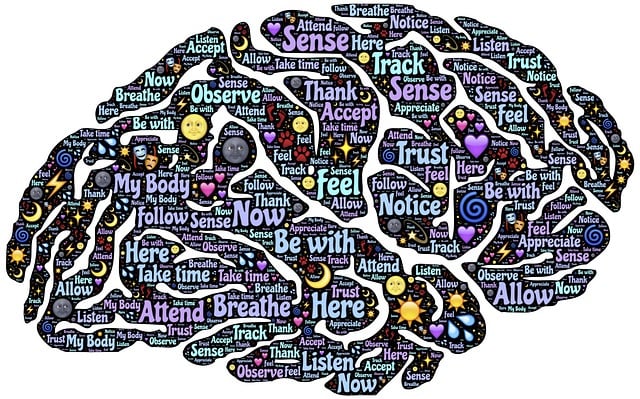Littleton Gender-Affirming Care Therapy (LGACT) is a pioneering approach that uses emotion regulation skills, tailored strategies like empathy building and stress management workshops, and comprehensive risk assessments to empower LGBTQ+ individuals. LGACT creates safe spaces for clients to explore emotions and identities openly, promoting self-acceptance and personal growth. Through practical techniques like mindfulness, role-playing, and cognitive reframing, individuals gain tools to manage emotions effectively, preventing issues like depression in holistic mental healthcare.
Emotion regulation techniques are powerful tools that can significantly enhance overall well-being. This article explores these skills, highlighting their profound impact on mental health and daily life. We delve into the innovative Littleton Gender-Affirming Care Therapy (LGACT) approach, a game-changer in therapeutic practices. By understanding emotion regulation, readers will discover practical techniques to manage and express emotions effectively. From mindfulness to cognitive reframing, these strategies foster resilience, especially when tailored through LGACT principles.
- Understanding Emotion Regulation and its Impact on Well-being
- The Littleton Gender-Affirming Care Therapy Approach
- Practical Techniques for Teaching Effective Emotion Regulation Skills
Understanding Emotion Regulation and its Impact on Well-being

Emotion regulation is a vital skill that significantly influences overall well-being and mental health. It refers to the ability to understand, manage, and adapt to one’s emotional responses in various situations. By learning effective emotion regulation techniques, individuals can enhance their resilience and coping mechanisms, leading to improved quality of life. This process involves recognizing and acknowledging emotions, regulating intense feelings, and responding flexibly to different circumstances.
In the context of Littleton Gender-Affirming Care Therapy, understanding emotion regulation is crucial. Many clients seeking therapy may struggle with managing strong emotions related to gender identity issues or other mental health concerns. Mental health professionals play a significant role in teaching these skills through tailored strategies, such as empathy building and stress management workshops. A comprehensive risk assessment for these professionals is essential to ensure they can support clients effectively while maintaining safe practices, especially when navigating sensitive topics.
The Littleton Gender-Affirming Care Therapy Approach

The Littleton Gender-Affirming Care Therapy (LGACT) Approach is a revolutionary method designed to empower individuals, especially those within the LGBTQ+ community, by fostering inner strength development and mental illness stigma reduction efforts. This therapeutic framework goes beyond traditional care by creating a safe, inclusive space where clients can openly explore their emotions and identities. LGACT encourages self-acceptance and provides tools to navigate life’s challenges, ensuring a supportive environment for personal growth.
Through its comprehensive approach, the program aims to integrate community outreach initiatives, offering resources and support that extend beyond therapy sessions. By engaging with local communities, LGACT facilitates open dialogues about gender identity and sexual orientation, contributing to broader mental illness stigma reduction efforts. This holistic strategy not only supports individuals but also cultivates a more inclusive society where everyone can thrive without fear of judgment or discrimination.
Practical Techniques for Teaching Effective Emotion Regulation Skills

Teaching effective emotion regulation skills is a powerful tool for enhancing well-being and resilience, particularly in the context of Littleton Gender-Affirming Care Therapy. One practical approach involves incorporating various techniques into therapy sessions and educational programs. For instance, Mental Health Education Programs Design that focus on self-awareness exercises can empower individuals to recognize and understand their emotions. These exercises may include mindfulness practices, such as guided meditation or body scans, which help clients develop a deeper connection with their feelings.
Additionally, role-playing scenarios and cognitive reframing techniques can be employed. Role-playing allows individuals to practice responding to emotional triggers in a safe environment, fostering better impulse control. Cognitive reframing encourages clients to challenge negative thought patterns associated with their emotions, thereby promoting healthier ways of interpreting and responding to challenging situations. By combining these strategies within a supportive framework, therapists contribute to the prevention of issues like depression, making it an integral part of holistic mental health care.
Emotion regulation is a powerful tool for enhancing well-being, and the Littleton Gender-Affirming Care Therapy (LGACT) approach offers a unique and effective framework. By understanding the impact of emotions on our lives, we can employ practical techniques to manage them more effectively. The LGACT method, with its focus on gender-affirming care, provides a safe space for individuals to explore and regulate their emotions, fostering personal growth and improved mental health outcomes. These skills are invaluable in navigating life’s challenges, ensuring folks can thrive in today’s fast-paced world.














